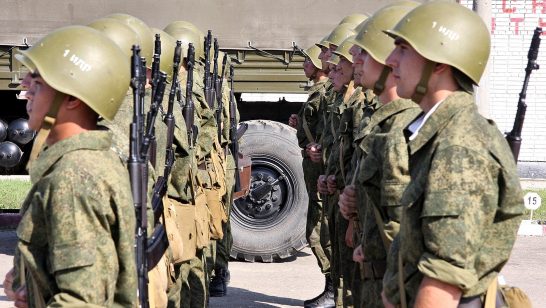
NATO is back on the centre stage of international affairs and the Warsaw summit will demonstrate whether it is capable of handling the challenges this brings.
In and around Europe various threats have broken a quarter of a century of relative tranquillity. Europeans, who for a long time have not felt threatened at home, have been caught off guard, short on military resources and capabilities. They have had found it difficult to adapt their mindsets to the numerous, complex and overlapping threats facing them and to the fact that there are not clear adversaries but rather a blurring between friend and foe.
NATO has to confront Russia in Europe and contain it in the High North, Middle East and in the Mediterranean. While both sides share common enemies such as Islamic State (IS) this does not make for a perpetual alliance but it does point to the possibility of an alliance of convenience. During the Cold War, the Soviet Union and the West were in a clear confrontation. The situation today is different. Failed states, instability and civil wars in the MENA region and beyond now pose a threat to all. The core defensive business that NATO was created for – responding to the direct security challenges facing its members – is again in focus. Is NATO up to the task given the complexity of the threats? Or is it only capable of preparing for only one kind of threat: a conventional, state-on-state conflict?
This is the subtext to the current NATO debate. The issue raised in some quarters, about NATO being “obsolete” because it cannot “fight terrorism”, notably by the Republican Presidential candidate Donald Trump deserve consideration. Mr Trump has oversimplified the issue but he is on to something. His argument about NATO’s usefulness not only resonates in the US but also relates to some European perceptions that the Alliance is now entirely Russia focused and pays only lip-service to problems in the Mediterranean and Middle East. When individual Allies choose to operate outside of NATO such as the US-led coalition in Iraq and Syria against ISIS; or when the North Atlantic Council doesn’t meet for political consultations in the aftermath of the Paris terrorist attacks, the question “what is NATO for” inevitably rises both in Europe and North America.
If NATO is “missing in action” in dealing with the threat from ISIS and from systemic state failures in the Middle East and North Africa, NATO can no longer claim a central role in Western security. Others will have to fill the vacuum. This will most probably be NATO Allies themselves but operating in different formats. The drawbacks of this approach are mainly political. First and foremost, if NATO ceases to be a holistic guarantor of security, why should allies in one region care about threats in others? Second, where but in NATO would the United States, Europeans and Turkey sit at the same table and discuss security?
In Warsaw, NATO will carry out the measures decided at the Wales summit in response to Russia’s annexation of Crimea and its support of rebels in Eastern Ukraine. The limited rotational presence of NATO troops in the Baltic States and in other Eastern Allies’ territory is a deterrent, not an escalatory measure. For example, in spite of the heightened rhetoric from Moscow the Aegis Ashore missile defence system is not a threat to Russia. It would hardly make a dent in Moscow’s large arsenal of ballistic missiles. NATO has little choice but to show firmness, unity and solidarity and reassure Allies who feel threatened by Russia’s readiness to bend the rules to its advantage.
But NATO’s policy toward Russia needs to go beyond simple deterrence. It must seek dialogue, at least in order to establish military transparency and ground rules to avoid unwanted incidents and provocations. Engagement is not appeasement. Nor is it a reward for Russia. In traditional East-West relations diplomacy has a good track record. It is high time to reactivate, together with deterrence, the negotiating track – Russia permitting of course.
Any Russia policy, firm and farsighted as it might be, will leave NATO as a one-sided alliance unless it is coupled with a parallel Southern strategy where NATO also reclaims ownership of collective security for the threats emanating from the Mediterranean, the Middle East and from Africa. This does not mean NATO has to “do it all”. The security tasks can and should be shared and coordinated among stakeholders. The Southern challenge is very complex, politically and militarily. NATO is a political-military alliance. Given the strong terrorist component, NATO also has to equip itself for counterterrorism, especially to respond to an Islamic State that combines a territorial base with international terrorism. Tasks can be outsourced. Responsibilities can be shared with the European Union. NATO can leverage and enhance existing partnerships, like the Mediterranean Dialogue, the Istanbul Cooperation Initiative (ICI) and its growing outreach to the Gulf Cooperation Council (GCC). It should be imaginative in developing relations and practical cooperation with the African Union and with individual African countries. An effective Mediterranean and Southern strategy requires a security network: NATO should place itself at the centre of it.
NATO leaders will meet in Warsaw on July 7 and 8, in the aftermath of the UK’s pivotal referendum on membership of the EU. Brexit would gloomily overshadow the summit, making NATO the only remaining example of European and Atlantic solidarity. The EU will also have made its decision on sanctions on Russia that are due to expire in July. President Obama at his final NATO meeting will call on Allies to shoulder increased defence spending. Europeans should listen. The next President will have less patience with free riders.
Come what may, Warsaw will be the ultimate test of the unity of the West. NATO cannot mould the context but can shape the reply. It must combine firmness, balance and flexibility, sending a message of Western cohesion to Moscow and signalling its commitment to face threats from the South as well as from the East. There cannot be “Eastern” or “Southern” Allies, only Allies. Security for all Allies – whatever it takes.
The opinions articulated above represent the views of the author(s), and do not necessarily reflect the position of the European Leadership Network or any of its members. The ELN’s aim is to encourage debates that will help develop Europe’s capacity to address the pressing foreign, defence, and security policy challenges of our time.


